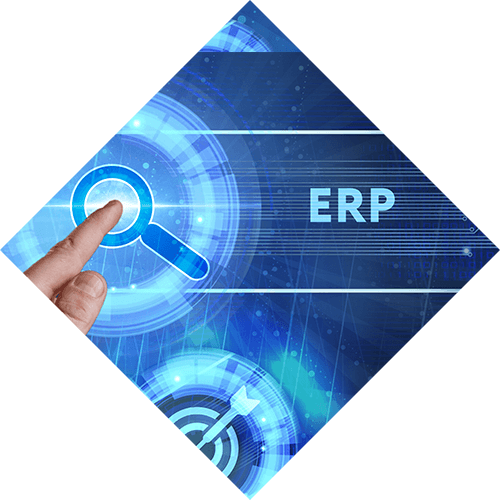The decision to deploy a new ERP (Enterprise Resource Planning) software solution takes not only monetary resources but also expertise, effort and extensive communication.
In a recent report by Gartner, 'Why Software Buyers Experience Regret', it was found that the top factors causing regret related to missed expectations and slow or difficult implementation.
A detailed plan goes a long way towards a successful ERP software implementation and helps organisations avoid the most common challenges. To achieve the full potential of a new ERP solution, time must be taken to devise a viable, long-term plan of action to support it.
Why do ERP implementations fail?
With 3 in 5 buyers regretting a software purchase, discover 7 common ERP implementation challenges and use these guidelines to see how you can alleviate some of the initial stress by avoiding running into difficulty when implementing an ERP solution.
1) Lack of planning


Whilst this might seem the most obvious piece of advice – a properly planned venture is one that has accounted for both enterprise-wide and individual needs. It is important to analyse problems that need to be addressed by the introduction of an ERP software solution.
Once you have regulated all policies and business processes, you will see the wider picture of your business requirements and the capabilities you desire. This will have an impact on the specific software and the support partner you choose to work with, so it's a vital first step.
2) Resistance to change


Organisational resistance can be one of the biggest barriers when implementing a new ERP software solution. If the advantages of the new system are not adequately and enthusiastically explained to management and employees alike, it is unlikely that the change will be accepted and incorporated into their everyday working processes.
It is important to combat user resistance as it can be one of the biggest reasons that the benefits of a new system are not fully felt and in turn, hinder its effectiveness.
3) Picking the right software provider for your ERP project

Whilst there are numerous ERP software providers and solutions, it is important to source a partner that will be able to address your industry-specific problems confidently. Good project management is key.
At Syscom, we only provide software and support to clients where we have precise industry knowledge and expertise. The industries we implement into are manufacturing, distribution, furniture, and apparel.
We have even developed unique industry applications based on feedback and collaboration from key industry players (discover ApparelX for fashion manufacturers & distributors and Syscom 365 Furniture for the furniture manufacturing industry.)
4) Poor communication and feedback

As previously addressed, resistance to change can be one of the pitfalls of enterprise software implementation. But that problem can be amplified by poor communication with staff and feedback not being listened to. Suppose individual workflow changes aren’t addressed throughout the process of implementing ERP software. In that case, employees won’t be able to adapt to the system or achieve the goals set for them and will quickly turn to what they know best, or find workarounds.
It is important to make sure that employees who will be using the software have their comments or concerns heard.
5) Inadequate training

Dedicating time to educating users about the software is crucial as it affects not only processes but the entire operation of the business. Training can often be something that is thought about much later in the process of a project, but it is a reoccurring theme within ERP implementation failure reasons, as inadequate users aren’t productive workers.
A new software system can appear overwhelming, to begin with. Therefore users need to be made aware of how their tasks will be made easier and be briefed on how they can make use of the software to improve their productivity and job satisfaction.
6) Time & resources

Time and resources are common challenges of implementing an ERP system. Most companies massively underestimate the complexity of an ERP software implementation and by not adequately assessing how much time and resources the ERP implementation process will need, set unrealistic expectations surrounding the project.
If you underestimate the time and resources required throughout the project it will ultimately only mean an extension on deadlines, a budget overspending and a delay in going live - this is often the result of a poor project plan from your vendor.
7) Neglecting maintenance/updates

Once a system is in place, the challenges of ERP do not end there. It is important to regularly review how the software supports the business processes. Organisations are constantly evolving, whether opening a new warehouse or introducing new specifications to products. An ERP software solution needs to be continually refined to grow with the business requirements to remain the effective tool you bought.
Plus keeping your system up to date will protect your data, maintain your current processes, and offer the benefits that the latest version brings - new features, functionality and security updates.
Avoid the challenges of implementing an ERP system with support from Syscom
There is much to consider when implementing enterprise resource planning software. At Syscom, we can help you to realise the potential a modern ERP software solution can bring to your business, and avoid ERP implementation challenges. Get in touch with us for a no-obligation discussion about your requirements.
Call 01384 400 600, email info@syscom.plc.uk or submit a contact form below.
















